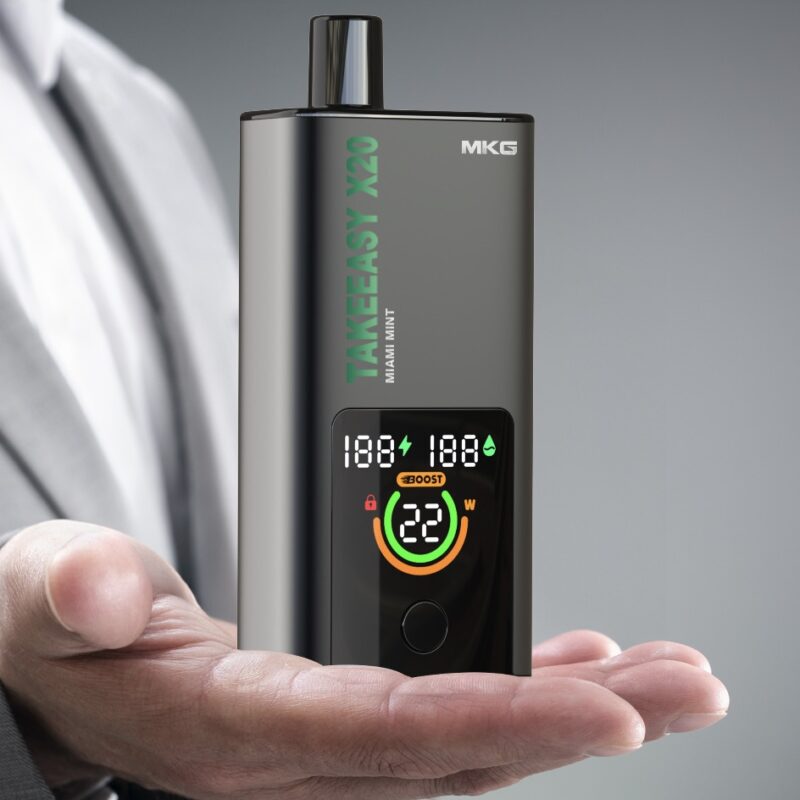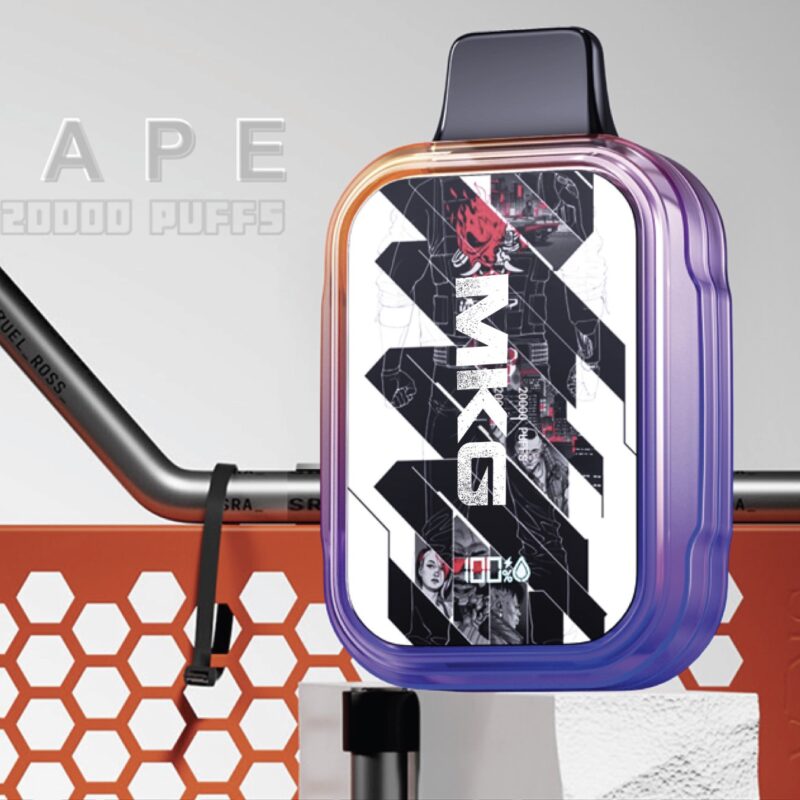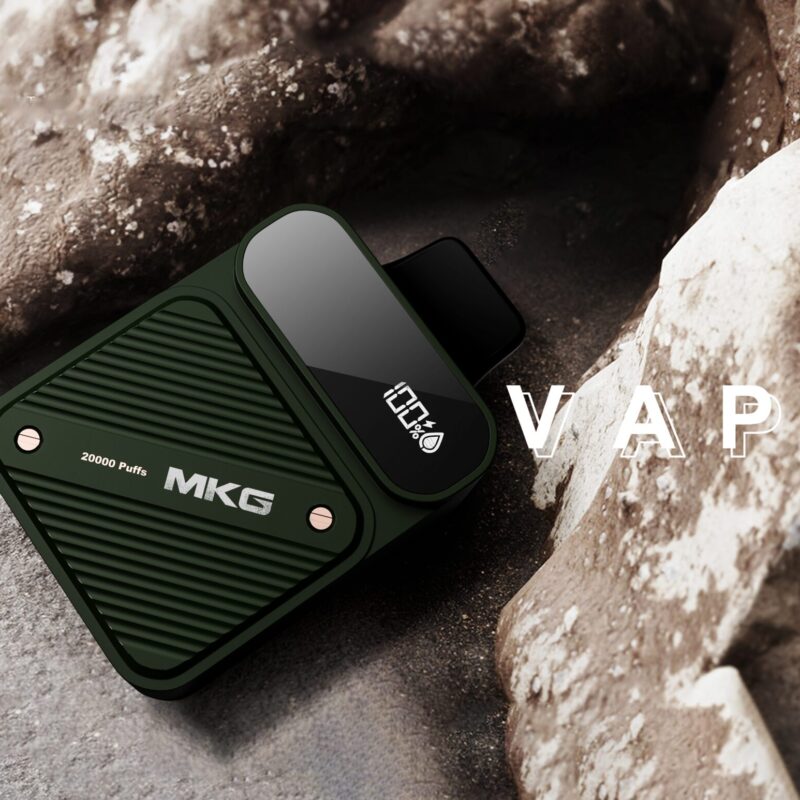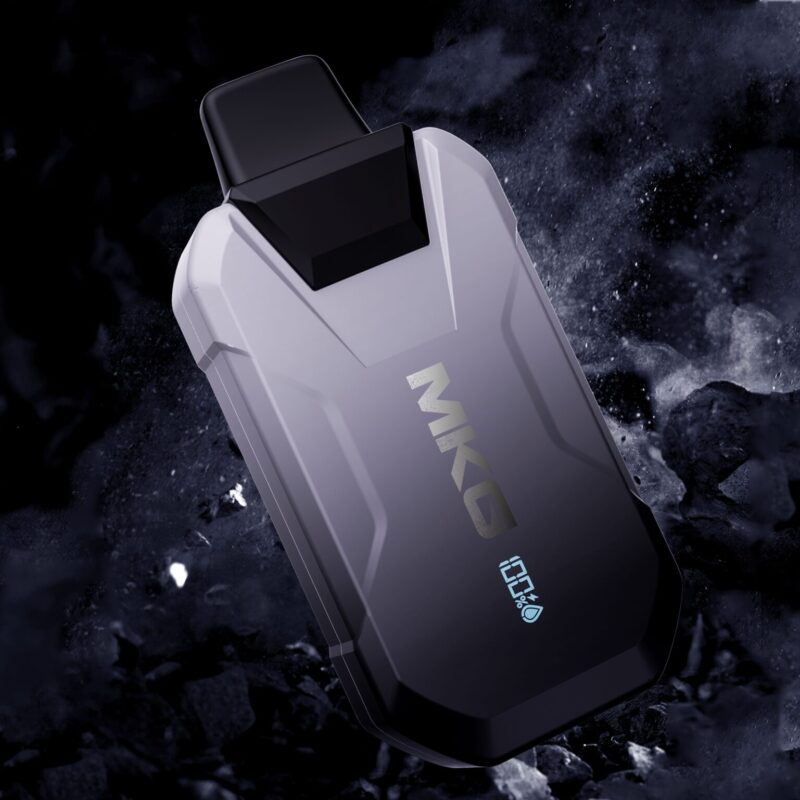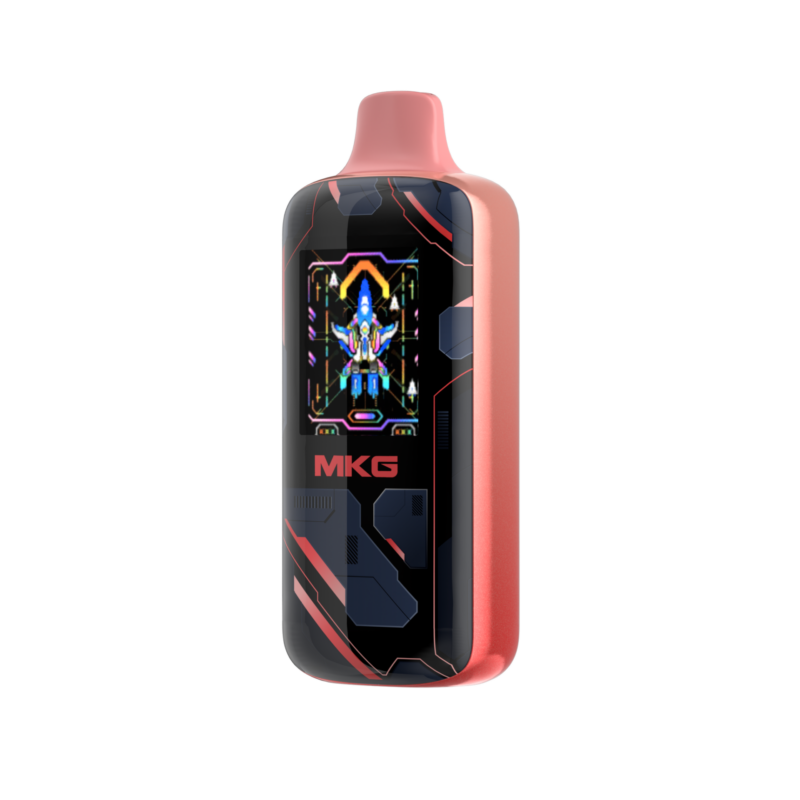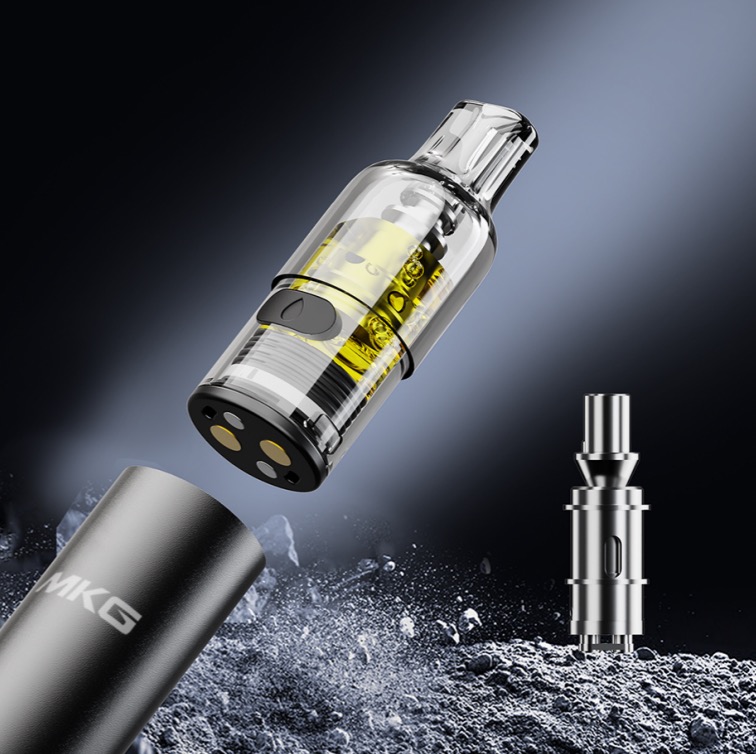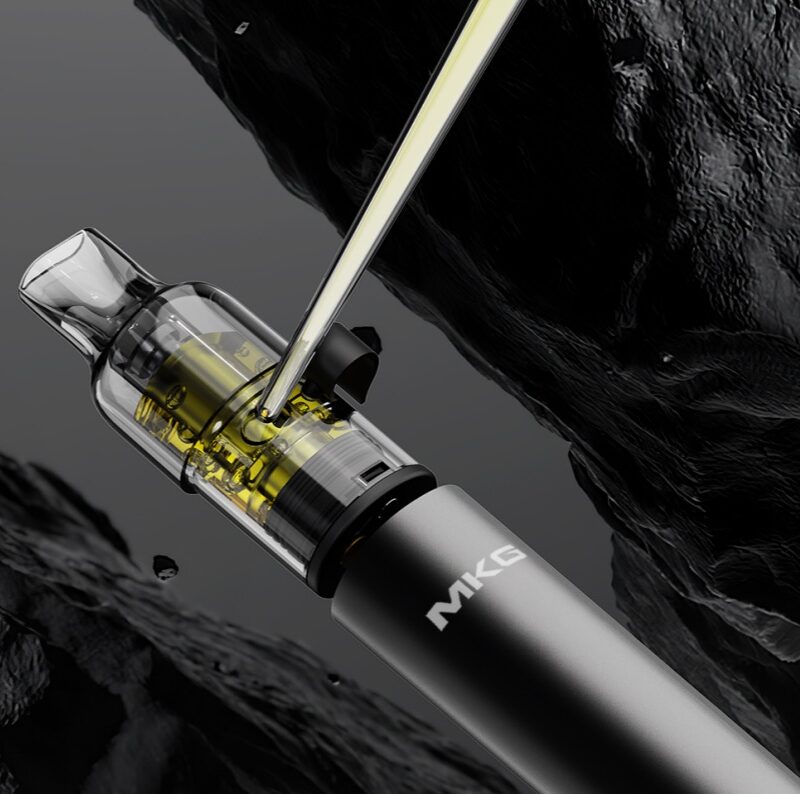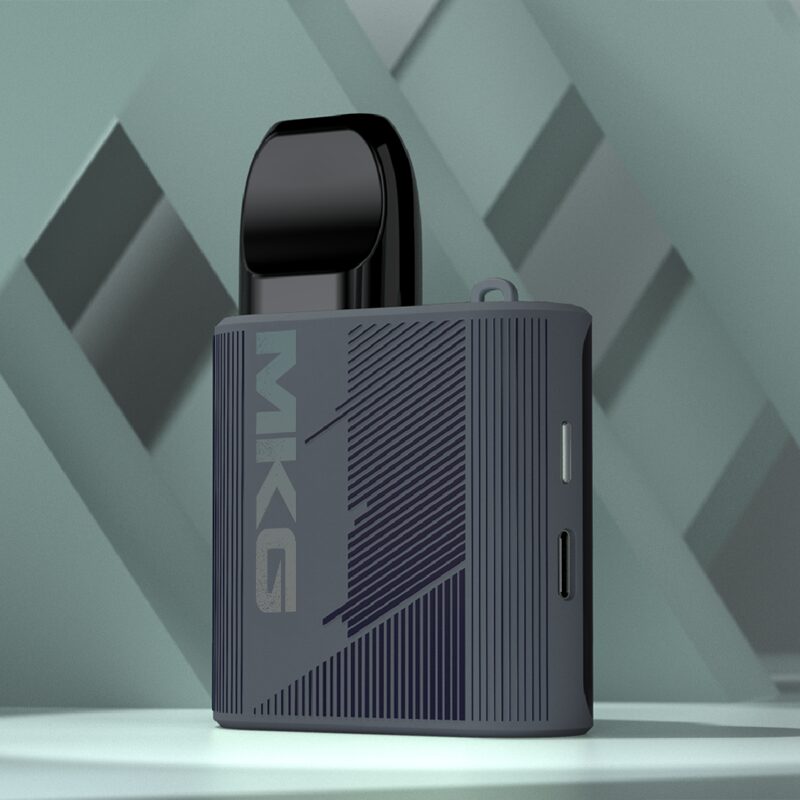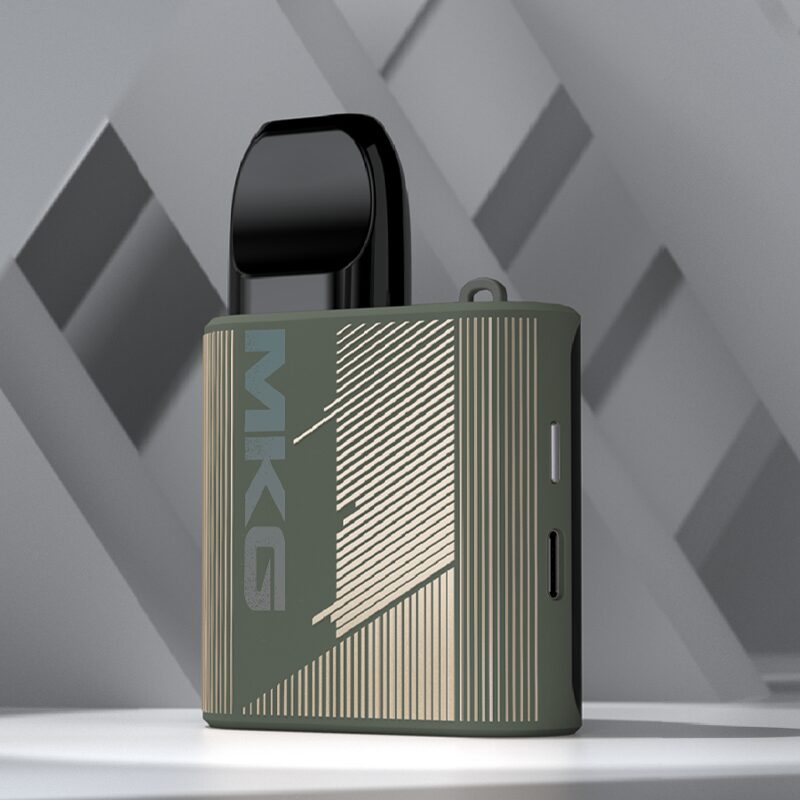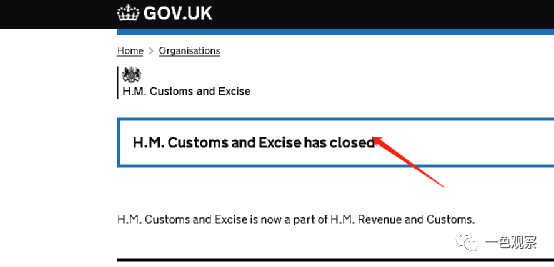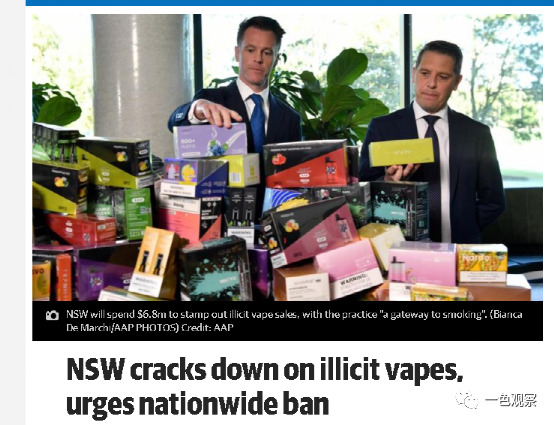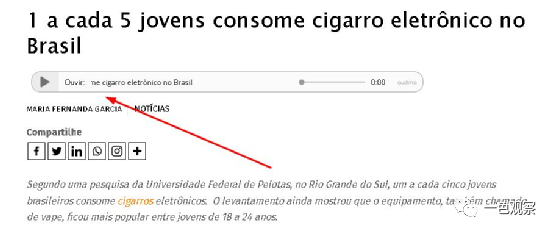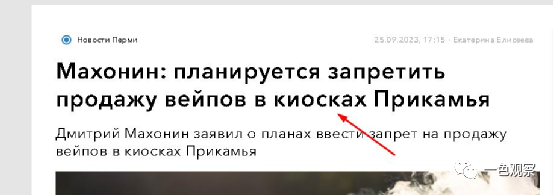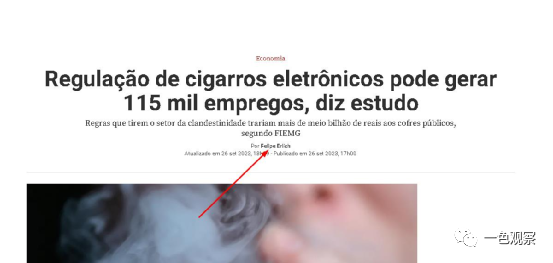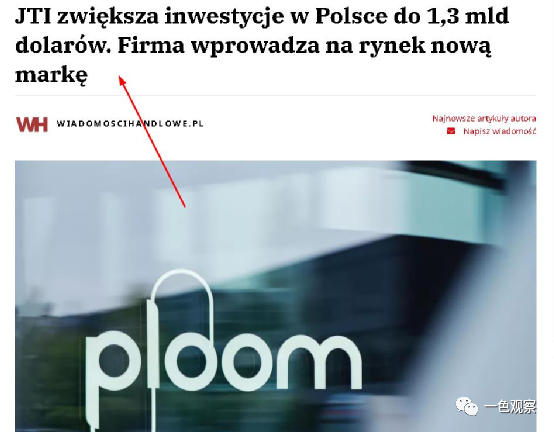According to news on October 15, the e-cigarette import and export data recently released by the British Customs and Excise Department (HMRC) showed that in July, the UK’s imports from China were only 75.48% of China’s exports to the UK. Exports 77.53% of UK exports. In July, the unit price of UK imports was 30.52 pounds/kg and the unit price of exports was 43.53 pounds/kg. Ireland, Spain and France are the main exporters of e-cigarettes to the UK.

However, according to research information in the German market, the EU is facing a large number of resales of British e-cigarettes. As the British e-cigarette market matures and market competition becomes fierce, some British traders are selling low-priced e-cigarettes to other countries. Data shows that the UK’s main import ports are London Heathrow (76.98%), Felixstowe (8.11%), and Manchester Airport (7.62%); the main source country and region of e-cigarettes is China ( 76.47%), Hong Kong, China (10.04%), and South Korea (4.96%). The British e-cigarette standard was born out of the EU TPD standard. Most of the compliant e-cigarettes are 2ml, 600 puffs, and the weight is mostly 30-50g/stick. In July, the import unit price in the UK was 30.52 pounds/kg, and the export unit price was 43.53 pounds/kg. The import unit price of each e-cigarette was about 1.17-1.76 euros/expense, and the export unit price was about 1.52-2.51 euros/piece. The export volume was 8,039,523 pounds, an increase of 15.89% month-on-month and 45.46% year-on-year. However, the main export ports in July were Dover/Eurotunnel (37.90%), London Heathrow (11.08%), and East Midlands Airport (10.45%); the main e-cigarettes The export destination countries are Ireland (17.51%), Spain (13.07%), France (12.83%), and Germany (8.93%).
The second batch of tax stamps for e-cigarette products from Indonesian IRT Company has arrived!
According to news on October 15, Indonesian PT INDONESIA RASA TEKNOLOGI (referred to as Indonesia IRT) recently stated that it has a legal e-cigarette import license, production license and application for e-cigarette tax stamps issued by the Indonesian government.
It said that domestic e-cigarette companies can borrow the qualifications of Indonesian IRT to help domestic e-cigarette manufacturers land in the Indonesian market and develop the Indonesian market.


Are some Australian states planning to ban the retail sale of e-cigarettes?
According to news on October 15, Chris Minings, the governor of New South Wales, Australia, recently said that retailers selling e-cigarettes should be banned nationwide to curb the easy access to illegal products containing nicotine.

The state government has committed $6.8 million over three years to enforce vaping restrictions and services to help young people quit smoking. Mr Minns said more inspectors checking illegal e-cigarette sellers would help, but a national approach was needed. According to current Australian law, nicotine-containing e-cigarette products can only be purchased and sold with a prescription, but nicotine-free products can be purchased over the counter. However, many products currently sold at retail in Australia have been found to contain nicotine. Currently, retailers can be fined $2,000 for illegally selling e-cigarettes. The federal government announced $234 million in May for tighter regulations, including tighter import and packaging controls. These measures, which are yet to be introduced, include a ban on the import of over-the-counter e-cigarettes and disposable products for retail use.
Philip Morris International Group launches HNB in the UK?
According to news on October 15, betterretailing recently reported that Philip Morris (PML) is forming a professional on-site team to support stores in promoting its new Iqos Iluma device.

At a product launch event in London last week, PML revealed that it would form an on-site team of more than 150 people to contact 10,000 convenience retail stores and professional e-cigarette stores across the UK, and use 100 brand ambassadors for promotion. Additionally, PML will relaunch its digital trade engagement platform. PML hopes that this move will make consumers understand that Iluma uses technology similar to induction cookers to heat cut tobacco, rather than burning it like cigarettes.
Is Brazil considering legalizing e-cigarettes?
News on October 15, according to observerio news, according to research from the Federal University of Pelotas, in Rio Grande do Sul, one in five young Brazilians uses e-cigarettes. The survey also showed that the devices, also known as e-cigarettes, are growing in popularity among young people aged 18 to 24. The proportion of minors in Brazil who have tried the product is 16.8%, compared with only 7% in the UK. At the end of this month, the Federal Senate in Brasilia will hold a public hearing to discuss the importance of regulating e-cigarettes.

Although not regulated in Brazil, e-cigarettes are sold freely on the streets, which experts say is a factor increasing risks for users. This is because, since they are illegal, there is no regulation on their entry into the country, the illegal market, and the substances used in these devices. It is reported that the Federal Senate of Brasilia will hold a public hearing at the end of this month to discuss the importance of regulating e-cigarettes. Brazil needs to take action to ensure the health of its young people.
According to news on October 15, the governor of Russia’s Perm Territory, Dmitry Makhonin, recently announced plans to ban the sale of e-cigarettes at kiosks in the Kama region.

He wrote on his social network page that e-cigarette sales points are set up in the most crowded places – on the roads and near buildings of educational institutions. Dmitry Mahonin said that in September 2023, police inspected 380 e-cigarette sales points in Solikamsk, Perm, Kungur, Kudemkar and Berezniki. He also added that it is recommended to pass a regional law that would completely ban the sale of e-cigarettes from kiosks. The bills are currently being approved and they will soon be submitted to the Kama Regional Legislative Assembly for consideration.
German e-cigarette exports rebound!
According to news on October 15, according to trade data updated by the General Administration of Customs of China, China’s e-cigarette exports to Germany in August 2023 were US$80,236,170 (approximately RMB 587 million), an increase of 15.67% month-on-month and a year-on-year increase of 37.60%. %. The export volume was 1,002,589 kilograms, a month-on-month increase of 2.38%. The export unit price was US$80.03/kg (approximately RMB 585.20/kg), a month-on-month increase of 12.98%. In contrast, the volume of e-cigarettes exported to Germany in August was 979 tons more than in July. However, Germany’s export volume is less than that of the United Kingdom. The United Kingdom’s e-cigarette exports from China in July were US$103 million (approximately RMB 752 million); the export volume was 26,133,81 kilograms. Compared with the export volume to the United States of 252 million U.S. dollars (approximately RMB 1.843 billion), the export volume was 5824,894 kilograms, which was also less.
According to customs data, about 1,000 tons of e-atomizers are exported to Germany every month, with a volume of nearly 600 million yuan. From this point of view, overall Germany’s e-atomizer exports from China have rebounded this year. Judging from German data this year, apart from the downturn in February and April, May and June were both peaks, and exports picked up in August. But we have also seen that in terms of China’s current export volume of e-atomization, the United States exports about 5,000 tons a month, while the United Kingdom exports more than 2,000 tons, and Germany only exports more than 1,000 tons. These figures show the approximate size of a country’s e-atomization industry. Generally speaking, there are two codes for electronic atomization outlets, one is 24041200 and the other is 85434000. 85434000 is the cigarette rod or equipment, which used to be the replacement of single cigarette rods; 24041200 should be disposable electronic atomization + cigarette Bullet estimate.
Four major tobacco companies sign regulatory guidelines for nicotine pouch market in Poland
According to news on October 15, according to gazetaprawna, British American Tobacco Trading Poland, Imperial Tobacco Poland, Philip Morris Poland Distribution Company and Swedish Match Company signed the market supervision guidelines for tobacco-free nicotine bags, which regulates tobacco-free nicotine bags. standards. The agreement includes: stipulating rules for marketing communications, applicable only to adults; recommending that the nicotine content per bag does not exceed 20 milligrams; placing health warnings on packaging; packaging must include product ingredients, nicotine content, bag weight, production date and expiration date information, etc.
The guidelines, signed by manufacturers of tobacco-free nicotine pouches, establish the regulatory framework in the Republic of Poland. These rules are voluntary, initiated by the industry itself. Tobacco-free nicotine pouches are another smoke-free solution for smokers after e-cigarettes. These pouches contain flavoring, nicotine and a base usually made of cellulose. They are tobacco-free and are intended for oral use and work by being placed between the gums and cheeks or upper lip. Countries that currently produce and sell tobacco-free nicotine pouches include Poland, Sweden, Denmark, Italy, Latvia, Estonia, the United Kingdom and the United States. Since there is no official regulatory policy in Poland, the industry decided to self-regulate. Rafał Dutkiewicz, Chairman of the Employers’ Governing Council of the Republic of Poland, said of the signed guidelines: “The guidelines signed today reflect the industry’s common approach to basic issues in the category of tobacco-free nicotine pouches.” In his comments, Dutkiewicz also mentioned the Ministry of Finance’s work on excise taxes. work. Currently, nicotine pouches are not taxed. Although a meeting of the team to formulate a hypothetical amendment to this aspect of the Excise Tax Act was held on July 27, 2023, the amendment was not passed in the current term of the House of Representatives.
Saudi state-owned enterprise Badael is also promoting nicotine bags?
According to news on October 15, Badael, a nicotine bag company from Saudi Arabia, recently stated that consumers and retailers have responded very positively to DZRT nicotine bags. He also said the company’s mission is to move smokers from cigarettes to healthier options, which is exactly what nicotine pouches are for. Currently, they only sell products in Saudi Arabia, but plan to gradually expand to surrounding countries. The company plans to export DZRT nicotine bags to Gulf Cooperation Council (GCC) countries, such as the United Arab Emirates, Kuwait, Bahrain and other markets, and then build on this , further expanding from the Middle East to the world.

Badael was established in May 2023 and means “alternatives” in Arabic. In its official website introduction, Badael is said to be a wholly-owned subsidiary of the Saudi Arabian Public Investment Fund. Thakur shared information about the stakeholders of Badael Corporation, whose investment comes from the Public Investment Fund (PIF), as they work towards a shared vision of improving the quality of life of the population. Badael launched its own brand of nicotine pouches – DZRT – shortly after the company was founded. The product first launched on the website and is now available in retail stores.
In August, China’s e-cigarette exports to South Korea increased by 128%!
According to news on October 15, according to trade data updated by China Customs, data on e-cigarettes exported from China to South Korea in August 2023 showed that China’s exports of e-cigarettes to South Korea increased by 21% year-on-year to 400 million yuan in August.
The export volume was US$59.1 million (approximately RMB 432 million), a month-on-month decrease of 12.54% and a year-on-year increase of 20.75%. The export volume was 2,588,260 kilograms, an increase of 8.73% month-on-month and a year-on-year increase of 128.33%. The export unit price was US$22.84/kg (approximately RMB 167/kg), a month-on-month decrease of 19.56% and a year-on-year decrease of 47.12%. This means that South Korea’s e-cigarette exports from China are as high as 400 million yuan and more than 2,000 tons a month, which is similar to Germany.
Switzerland to ban tobacco advertising in print media from 2026
On October 15, according to swissinfo.com, the Swiss Federal Council voted in favor of a ban on tobacco advertising in print media. From 2026, tobacco or e-cigarette advertising will not be allowed in print media. However, exceptions will be made for publications targeting overseas markets or professionals.
However, MP Damian Müller said that the right-wing parties in the Bundestag had wanted to narrow the scope of some provisions, especially those involving newspaper advertising, which they considered too extreme. In his opinion, there is nothing wrong with advertising tobacco in publications to which adults subscribe. However, the center parties clearly favor strict implementation of the motion to ban tobacco advertising from reaching minors. And as early as 2021, Parliament supported another ban on tobacco advertising in public places. By mid-2024, tobacco advertising will be banned from posters and film advertising (bans are already in effect in some states), sponsorship of public buildings, stadiums, sporting events and international events.
Is Brazil planning to regulate the e-cigarette market?
According to news on October 15, according to veja.com, if Brazil can regulate the e-cigarette market, it may have a significant impact on the country’s economy and provide approximately 115,000 new jobs. The standardization of the Brazilian e-cigarette market has the opportunity to create a salary base of more than 20 billion reais (approximately 29.3 billion yuan) and provide approximately 673 million reais in revenue to the public finance.

The study added that whether it is a domestic or imported product, if the e-cigarette market is regulated, its annual sales are estimated to reach 16 billion reais. In 2009, Brazil’s National Health Supervision Agency (Anvisa) announced a ban on e-cigarettes, which made the e-cigarette market illegal. However, according to IPEA data, approximately 2.2 million people in Brazil currently use e-cigarettes. Against this background, the Brazilian Senate will hold a public hearing on Thursday, September 28, to discuss the possible standardization of the e-cigarette market.
Japan Tobacco increases investment in Poland’s HNB to US$1.3 billion!
According to news on October 15, Japan Tobacco International (JTI) increased its investment in Poland to US$1.3 billion and promoted one of its heated tobacco devices, PloomX. The tobacco insert used in this device is produced in Poland.

The market for heated tobacco products in Poland is very dynamic and currently accounts for more than 10%. In Warsaw this proportion exceeds 25% of the entire tobacco products market. Its value is estimated at PLN 4.8 billion. The innovative tobacco products factory in Stare Gostków near Łódź is increasing production of tobacco sticks for PloomX devices to meet growing demand for these products in Poland and around the world. Yan Sobolevskyy, JTI Poland Factory Operations Director, said that this year alone, the factory has added more than 100 employees, and the investment value of the innovative tobacco products factory exceeds 200 million US dollars. This is the only JTI factory of its kind outside of Japan and JTI is expected to make significant further investments in the production of innovative products and the entire production center in Stare Gostków.
Jordan emphasizes the upper limit on personal imports of e-cigarettes!
According to news on October 15, the Jordanian Food and Drug Administration recently emphasized the upper limit for personal imports of e-cigarettes, and commercial purposes will be strictly controlled.
According to khaberni.com, Dr. Nizar Mahidat, Director of the Jordanian Food and Drug Administration, conducted an in-depth investigation into the circulation of food, medicines and medical supplies, and conducted inspections at the air cargo customs at Aliyah International Airport. and Tahlis Airport customs inspections were conducted. He stressed the importance of determining the maximum quantity limit for personal use of e-cigarettes (vapes), heated tobacco products and e-liquids (E-liquid), and pointed out that commercial intentions need to be strictly controlled. At the same time, he called for strict investigation and punishment of food, medicine and medical equipment and supplies that do not comply with the contents of the documents.
British American Tobacco(BAT) plans to invest US$13.6 million in Savar plant in Bangladesh
News on October 15, getting involved in South Asia? British American Tobacco Bangladesh plans to invest BDT 1.5 billion (USD 13.6 million) in its Savar plant, Business Post reported. The investment will be generated from internal sources and bank financing based on the company’s cash flow, the Dhaka Stock Exchange disclosed.
It has been revealed that British American Tobacco Bangladesh is building a bonded warehouse to store packaging materials, leaves and finished products. The company also invested in electrical, fire detection and protection systems, air conditioning and ventilation systems, IT systems and security systems as well as the construction of on-site ancillary facilities for employee well-being and plant services, the construction of reinforced cement concrete roads and the establishment of underground drainage systems. And earlier this year, the company invested in the Savar plant to build emergency capabilities and take advantage of upcoming export opportunities. British American Tobacco Bangladesh is headquartered in Dhaka and has cigarette factories in Dhaka and Savar, a green leaf threshing plant in Kushtia and a green leaf re-drying plant in Manikganj.
Will Malaysia submit new tobacco bill? !
News on October 15, according to Focusmalaysia, the Public Health Tobacco Products Control Bill 2023 (GEG Bill) is expected to be submitted to the House of Commons next week. This bill may seriously damage the Malaysian e-cigarette industry, which is dominated by Malays.

Monaco plans to legislate to ban the sale of disposable e-cigarettes?
On October 15th, according to French media nicematin, the Monaco government announced at a press conference that it was formulating a bill to ban the domestic sales of disposable e-cigarettes (commonly referred to as PUFF in Morocco) that are widely used by teenagers. However, rechargeability is not affected.

Christophe Robino, Morocco’s Minister of Health and Social Affairs, told the media that the bill is basically completed and will be submitted to the national committee soon. He explained the rationale for the policy, noting that the circulation of disposable e-cigarettes was unpopular. Mainly for two reasons: First, health reasons. Officials know that the risk of teenagers switching from disposable e-cigarettes to cigarettes is very high, which is related to the nicotine content; second, environmental reasons, because the careless disposal of these battery-powered devices has a negative impact on the environment. cause impact. Such concerns are shared by France and many other countries in Europe. Previously, French Prime Minister Élisabeth Borne announced her government’s determination to ban disposable e-cigarettes as part of France’s anti-smoking plan. In addition, Robineau added that those rechargeable e-cigarettes will not be affected by Monaco’s future legislative ban.



